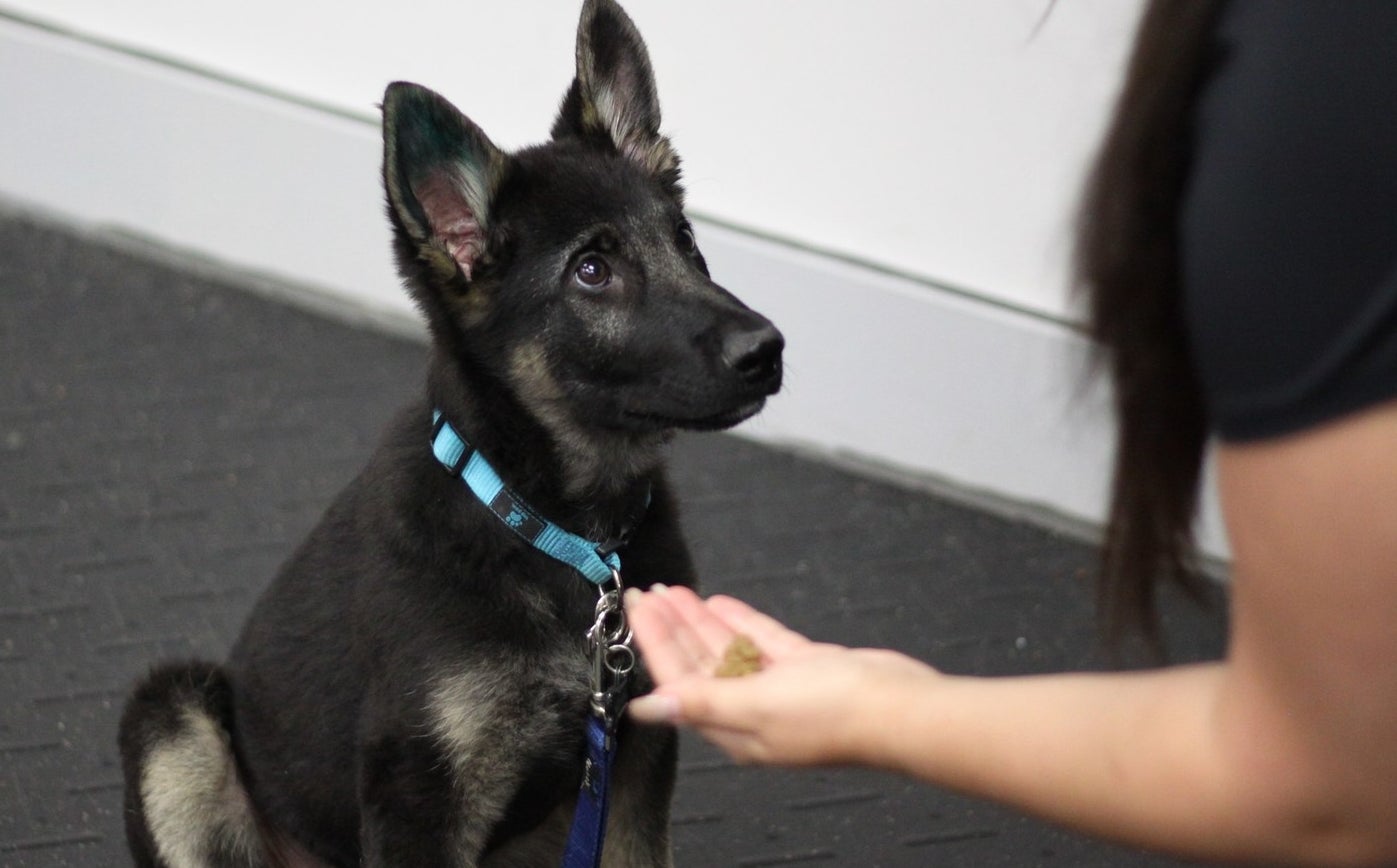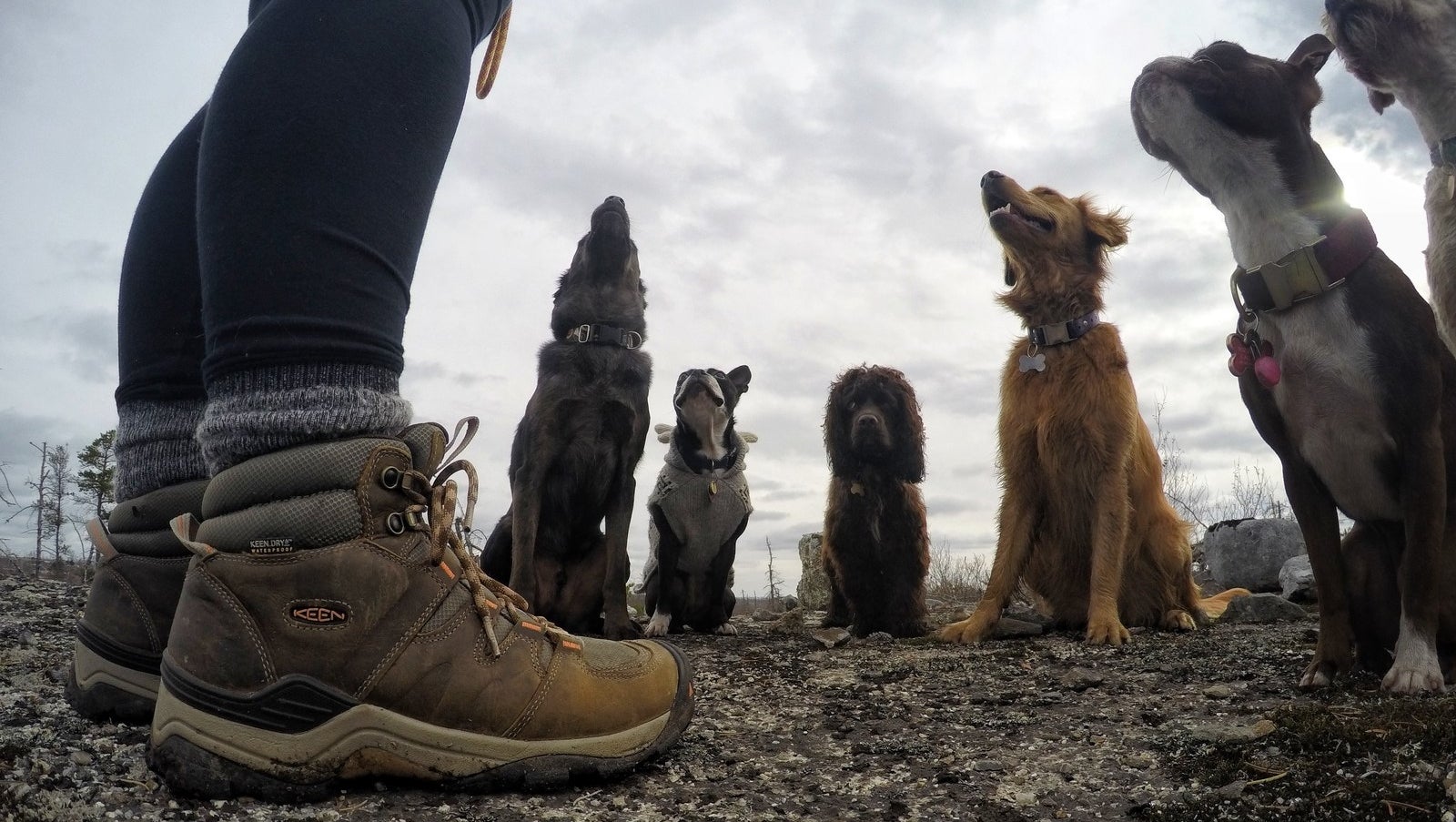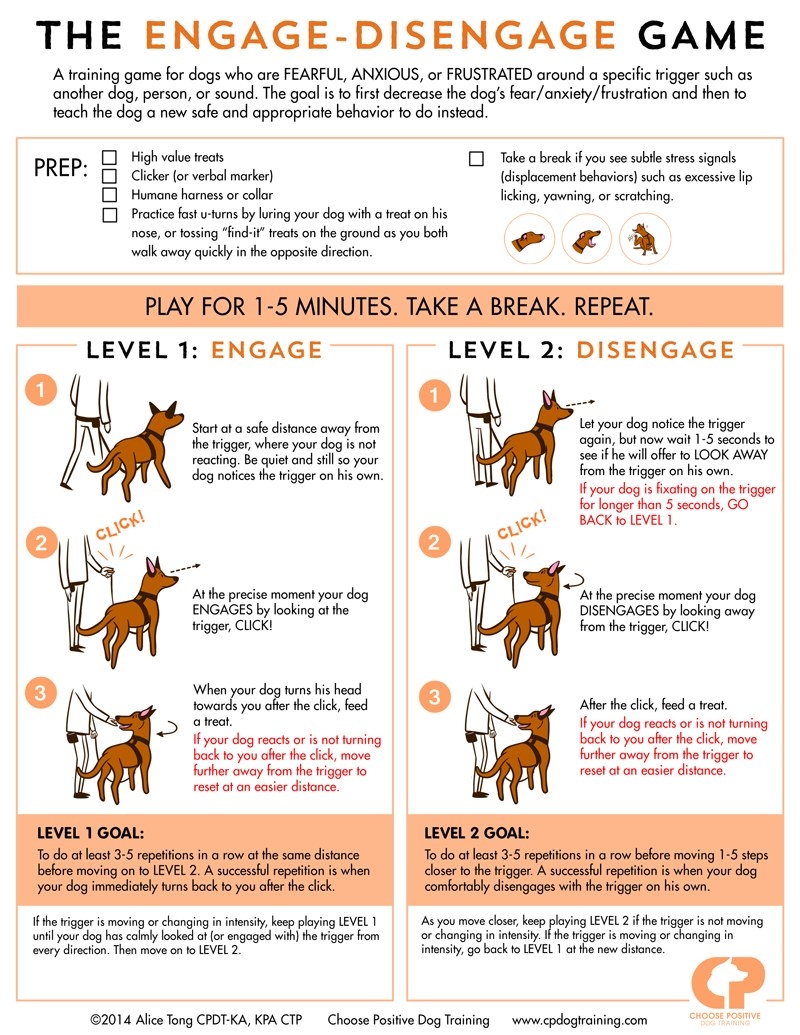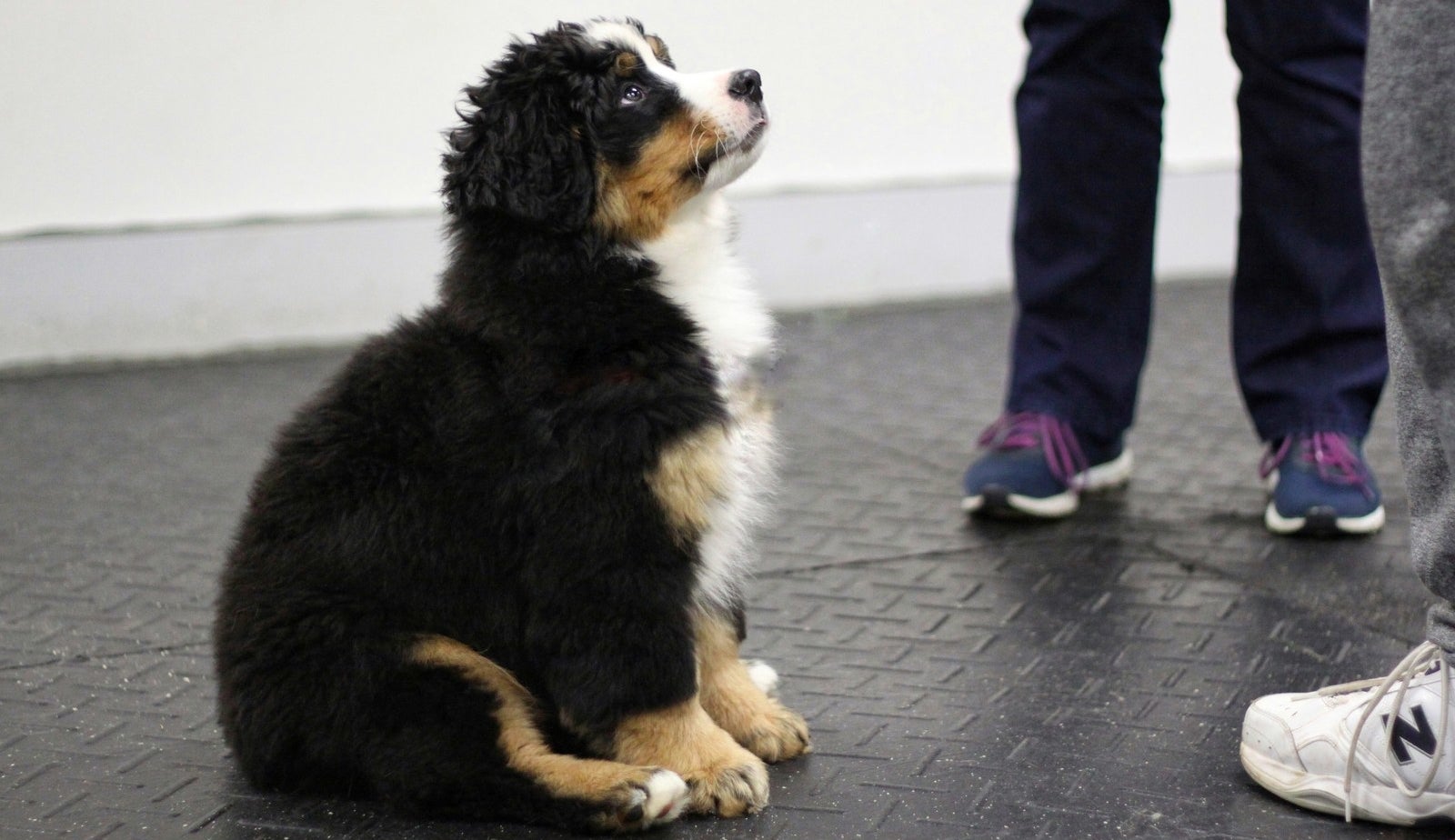What Is Socialization?

Socialization does NOT mean that they have to interact with whatever it is that we are trying to socialize them with. I personally would not be letting every stranger we come across pet my puppy, or be letting them meet unknown dogs on the sidewalk. Just because you put a treat into a strangers hand and get them to feed your puppy does not necessarily mean that they are building positive associations with that person. I often see people trying to lure their puppy over to a 'scary' person/dog/object that they are acting shy or fearful towards. Now this puppy is having to deal with conflicted feelings. They love treats so they want to get the treat, but it is near the scary thing that they don't want to go over to. This puts a lot of pressure on the puppy and from that, conflict can build into frustration or potential behavioural problems down the road. If the puppy ends up going over to get the food, after they swallow it now there is no food and they are WAY closer to the scary thing then they are able to handle. They have a threshold of what they can handle; of what they feel is safe and unsafe. So when they end up over that threshold of what they can handle, that fearful behaviour may escalate. I would much rather have my dog observe the "scary" thing from a distance they can handle, and use those food treats for some counter-conditioning instead of luring them. That way we our giving our puppy the opportunity to either investigate on their own, or to say "Not today, maybe tomorrow."
You might be surprised to hear that you can socialize puppies without having them actually touch or play with the thing that you are trying to socialize them with. It's like your mom said when you were a kid: "You see with your eyes, not your hands." Denise Fenzi was recently talking about this subject and made a comparison that paints this picture very well. Say you are a lion tamer by trade. You get a new puppy and they will be coming to work with you and you wish to socialize them to being around the lions. You would not put your dog into the lions cage. You would be allowing your puppy to watch the lions from a distance. There does not need to be contact or any social interactions between the puppy and the lion for the puppy to socialize with it.
I think this is where things go south with our attempts to socialize some puppies. We want them to see the thing that they may be nervous about, touch the thing, play with the thing, and almost coerce interactions with the thing in name of socialization, and in those cases we do more harm than good. A frantically excited, enthusiastic puppy might not be having the experience that we want them to have. We should always be letting our puppies move about their socialization at their own pace. Its not a sprint, but a long distance marathon. Take your puppy to different places to hear different sounds, see different things, and experience exploring the world with you in different ways. Puppies should be gaining information through observation and sniffing, and in turn will also be learning calm observational skills.

Is There Something we are Forgetting?
I think that we are forgetting a very, very important part of our puppy socialization: seeing things and not gaining access to them. Sounds simple, right? I can tell you, from the emails that I get on a weekly basis that this is something that is not getting the attention that it should be in our socialization process. Most of your dogs life will involve seeing dogs, people, children, bikes, foods, and other very exciting things that they will not be allowed to go see. If this is not something that you teach and practice, I guarantee you will run into issues in the future. I have met with many super social puppies who may even attend doggie daycare, and yet they are experiencing varying levels of reactivity.
When you have a new beautiful little puppy you aren't going to be able to walk ten feet without people stopping you asking if they pet your puppy. Your puppy is greeting every dog they meet on the street with gusto. You sign up for puppy socialization class. Sign up for daycare. Visit the dog park every day after work. Dedicate your weekends to puppy play dates. You've got a social little butterfly and life is good. Adolescence rolls around and now your puppy is bigger and maybe a little rowdier. Now you might notice less people want to stop to pet them, and strange dogs on the street have less tolerance for meeting your enthusiastic teenage pup. Your dog who has been able to meet, play with, and gain reinforcement from pretty much everything they ever came across and wanted no is suddenly being told "no", and "not now". Talk about frustrating!!

Want to do More?
I am definitely not saying to never let your puppy meet other dogs or people because that just isn't realistic. However there are things that you can start doing differently! For every handful of people your puppy gets to meet, trying letting them experience seeing an equal amount of people that you politely avoid and watch pass by. After playing at the dog park, spend a few minutes in the parking lot watching the dogs from a distance. When you meet up with your friends for a puppy play date, practice some group training at the same time! It shouldn't be just play play play the whole time. The ability to be around other dogs and yet still focus on the people is going to be such a handy skill for you guys to have.

When training your dog you want to be reinforcing the things that you want to see more of in the future. Behaviour that gets rewarded, gets repeated. If you want your dog to be able to calmly watch something, reinforce it when it happens. Those things in the environment can actually become cues to turn their attention back to you! "When I see a kid on a bike, if I turn my attention back to my owner good things will be happening for me!"
Start working on "doing nothing". Sometimes in dog training, less is more! For me, my ideal reaction from my puppies and adult dogs is them doing nothing. I prefer a person or dog walking by us to mean absolutely nothing to my dog, because since I've never reinforced them for pulling towards those things (by letting them get access to the thing they were pulling towards) it doesn't even cross my dogs mind. Calmly watching the world around them is how I want my dog to navigate life in this world. This is not necessarily a skill that comes naturally to puppies, which is why this is a behaviour that I reinforce generously. Our puppies should be finding us more reinforcing and awesome than their environment.
With all these great new skills, you will actually will get to be MORE social with your dog. A dog who has good emotional control can navigate through society with ease. A dog who does not lunge, bark, or cause a commotion is welcome in many more social situations. Being able to politely say hi to another dog and then more on will be able to navigate fun dog events like doggie expos, or sporting events like rally, agility, disc dog, and dock diving trials!
If I could only teach my dog one skill, this would be it. To calmly watch the world around them. If you start working on this too, you will find that it makes your walks and doggie social life much more pleasant! Happy training!



